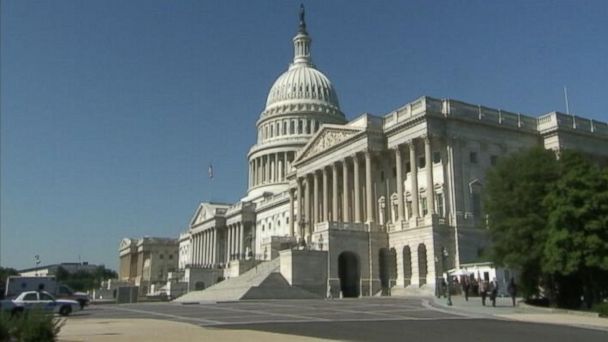'Hispandering': Is DC's Newest Buzzword Offensive?

(ABC News)
Washington has never been short of political jargon.
The "conversation," the "narrative," "filibuster," and even "sequester" have all seeped into everyday language. But a new word has arrived on the scene, and it's causing a stir.
"Hispandering," a portmanteau of "Hispanic" and "pandering," is a charge that means precisely what it looks like. No one can say exactly who coined the term; Rush Limbaugh used it in 2012, as did syndicated columnist Esther J. Cepeda. Some point to mentions as early as 2002.
The current kerfuffle over "hispandering" started this summer when Republican National Committee Hispanic Media Communications Director Izzy Santa accused Maryland Gov. Martin O'Malley of doing it in a recent string of public comments.
Santa accused Hillary Clinton of doing it too.
"Strange thing happened last week, Hillary Clinton in a matter of 24 hours flip-flopped on the 2008 immigration law for trafficking victims," Santa wrote in an e-mail sent to reporters. "On NPR with John Harwood, she said she was open to changing the 2008 law. However the next day in front of Univision's Jorge Ramos, she switched her stance and said she does not support changes to the 2008 law. Hispandering?"
Back in June, the Democratic National Committee's Director of Hispanic Media Pili Tobar called the word "offensive" - an assessment she echoed in a follow-up statement to ABC News this week.
"It's clear that the RNC isn't interested in finding solutions-while Republicans keep paying lip service to Latinos and repeating silly phrases that demean the community," Tobar said.
Infographic: Latino Population Growth in the U.S. Since 1850
Rand Paul Says GOP Must Get 'Beyond Deportation'
Obama Announces Unilateral Action on Immigration
For her part, Santa said any discussion of the word is pure fluff-a non-issue.
"'Hispandering' is just a word. People use it. It's not meant to be offensive to the Hispanic community," she said in an interview with ABC News. "It's a simple, popular word that is commonly used. As a Puerto Rican myself, if somebody used the term 'hispandering' to me, I wouldn't be offended."
She added, "I'm sorry that the DNC is not in tune with the Hispanic community and doesn't realize it's used very widely, whether in private conversations or in statements issued by the RNC."
The debate comes at a time when Congress, on the verge of its August recess, is mulling a solution to the flow of migrants across the border. Some Hispanic voices are skeptical of "hispandering," but say the real question is whether Congress will act on the border crisis and immigration reform.
Bertha Guerrero, director of National Advocacy at the Hispanic Federation, emphasized that "There should be substantive dialogue when it comes to the needs of the Latino community, and I don't think we should really be using that term."
Maria Torres, a professor of Latin American and Latino Studies at the University of Illinois at Chicago and Executive Director of the Inter-University Program on Latino Research, advised both sides to correct their approach - rhetorically and politically: "No group likes to be demeaned or thought about just as a group to be pandered to," she noted.
But to her, like to Guerrero, the real problem lies in the inaction.
"All these other types of attacks like Republicans attacking Democrats for pandering, or Democrats pointing the finger at Republicans over immigration reform-all these are sideshows that will alienate the Latino voter. There is a third option, and that's staying home," she added. "We need more than just one party correcting the other for being linguistically incorrect."